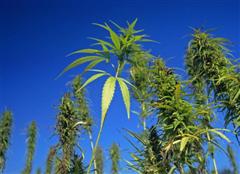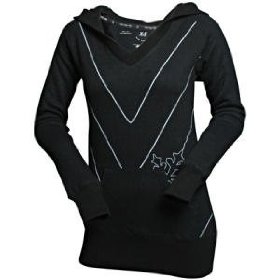Get The Scoop On Organic Hemp
Organic hemp clothing is here to stay.
Clothing designers have dusted off the hemp of the past and revived it with the creation of amazing modern and stylish garments from this
unique eco-friendly plant fiber source.

Hemp clothing is hot AND chic.
So greening up your wardrobe
is easy and exiting with new styles of timeless elegance, softness and comfort!
Organic Hemp Clothing Benefits
Hemp fabric used to be less than ideal for clothing because of it's coarseness. No longer! New and innovative process in treating the fibers with enzymes produces softness without sacrificing strength.
The result is a finer, softer and smoother fabric that is far more comfortable against the skin.
- Clothes continue to get softer wash after wash.
- Natural ability to block sun's UV rays effectively.
- Hemp yields long fibers which are strong and absorbent. Hemp is 4 times more durable and 8 times more tensile than cotton.
- Infamous durability- fibers are able to last up to three times longer than cotton.
- Hemp fibers hold their shape.
- Resists mold and mildew. Hemp canvas has been used for ships sails for decades.
- Soft and versatile. Anything that can be made from cotton, can be made of hemp.
- Fibers breathe well and wick moisture.
- Stretches less than any other natural fiber
- Natural and very efficient insulator. Fibers keep you warm in winter and cool in summer.
- Untreated hemp is naturally a pale blonde color. It takes both pale and vivid dyes and retains color well.
- Water absorbent
- Naturally resistant to ultraviolet light
- Blends well with other fibers like
organic cotton
to produce fabric weights from very light to canvas. Even has the flexibility to be used in knits.
- Lack of bleach agents makes hemp a good choice for those with sensitive skin.
- Perfect for garments that receive a lot of wear and tear (ie: uniforms)
- Hemp doesn't wear out - it wears in.
Natural Hemp Clothing Care
The more you wash it, the softer it becomes. Always read the washing instruction label sewn onto the garment. Hemp will handle extreme water temperatures well and doesn't really require any specialized care.
- Water temperature is not critical, but for best results, wash in cold water
- If your hemp garment has been pre-shrunk, it will be dryer safe
- Quickly dries naturally
Environmental Benefits
Pesticides and herbicides are one of the largest toxic threats to our environment because of their permanency.
It is a fact that several of these chemicals cause an array of immuno-deficiency disorders and are known carcinogens.

Appallingly, these chemicals tend to bio-accumulate, which simply means that their toxicity is enduring and even increases as they are consumed up the food chain.
Their long-term negative human and environmental effects are immeasurable.
Hemp is a versatile fiber whose claim to fame is over 25,000 different uses.
Organic hemp can be easily grown without any negative environmental impact.
- Organic hemp growing uses no residual chemical such as pesticides or herbicides which impact our health. That makes natural organic hemp a leader in the industry of organic farming methods.
- Hemp is an extremely fast growing crop which matures in 100-140 days and grows 15 feet (5 meters) or more.
- It produces more fiber yield per acre than any other source. Compared to trees, hemp produces 4 times the fiber per acre. That's extremely relevant since almost half the world's forests have been cut to manufacture paper.
Interestingly, hemp paper (which doesn't require chlorine bleach), has been around for ages, but the industry went dormant for about 60 years due to the prohibition on hemp growing. Many historical works have been documented on hemp paper such as the signing of the American Declaration of Independence and Van Gogh paintings.
- It takes 2-3 acres of cotton to produces as much fiber as 1 acre of hemp. One hectare of hemp will produce from 8000-11000 kilograms of dry biomass. Statistics like these make the trend toward organically grown hemp more desirable.
- The naturally dense foliage blocks weed growth.
- Hemp can be grown in most climates and is tolerant of frost.
- It's drought resistant and doesn’t have a high water requirement. The deep tap root system enables the plant to utilize subsoil moisture while aerating the soil.
- The strong roots anchor the topsoil. Natural decomposing adds rich mulch and fertility to the soil.
- Organic hemp is used for everything from nutrition and hemp fiber textiles to bio-diesel. Unlimited uses for industrial organic hemp include:
- medical properties - used in many lotions and skin care balms, to promote healing
- cooking oil - has a pleasant nutty flavor and is one of the lowest in saturated fats.
- nutrition - hemp seeds are eaten raw, used in baking, snack bars, cereals, etc
- industrial - rough stems used for house insulation and parcel packing as well as twine, cord, paper, webbing, and household goods
Understanding The Bad Rap
Hemp growing has almost disappeared from the western world largely due to textile demands being met by cotton growing. However, the bigger reason is that "hemp" received a bad rap because of the propaganda and misunderstanding surrounding it which was very damaging to the hemp growing industry.
The main reason for this is due, of course, to cannabis hysteria. Hemp is actually the cousin of "cannabis." Even though they are derived from the same plant species, each has completely opposite levels of the hallucinogenic THC (TetraHydroCanabinol).
Hemp refers to the industrial use of the stalks and seeds. THC is not a component of the products made from hemp. Industrial hemp is genetically and chemically different from cannabis and in fact, is not a drug at all. Textile hemp is useless for any hallucinogenic effects.
In spite of all the conflict and misunderstanding, hemp farming is once again making a comeback. The demand for organic hemp fiber is on the rise with hemp clothing making new demands for supply. Therefore, organic hemp growing displaying a breakthrough recovery with new hemp farms springing up after decades of dormancy.
With the decline in tobacco farms, hemp could very well be the product that saves farms and livelihoods, with the bonus that it is very earth-friendly.
Organic hemp does have a promising future. The pressure is on for governments to understand and appreciate industrial hemp.
Eco-friendly hemp clothing is a hot, growing market today and the hemp plant is building a strong name for itself in hemp fashion. The increasing number of legal hemp farms will produce more fiber to propel organic clothing into the mainstream, earning it the fame and fortune it deserves.
Consumer Responsibility
We all have a responsibility to the future of ourselves and our environment. There is hope, and now there's choices. Embracing hemp clothing will have a positive effect on the world by enhancing environmental quality.
It's the grassroots people that get the ball rolling at full speed. Use your purchasing power to make a statement.
So set yourself apart from the crowd - wear organic hemp!
Related Hemp Pages
Return From Organic Hemp Home Page






